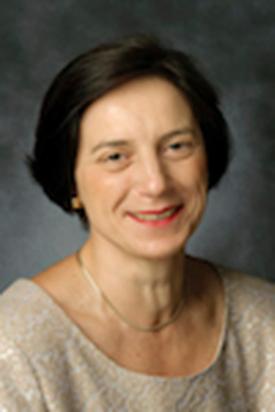ESSP 310 - Sustainable Food Systems
This course will examine the need for development of sustainable food production systems. The course will introduce the concept of an integrated agro-ecosystem. Students will learn how food production systems work, how they impact natural ecosystems, how fragile the human food resource has become, and gain an appreciation of the complexity of relationships between humans and food.
ESSP 420 - Sustainable Energy
This course is an interdisciplinary exploration of Sustainable Energy. The interdisciplinary exploration includes the analysis of renewable energy systems as well as the socio-economical, political, and environmental aspects of renewable energy. The course will specifically analyze the origin and dimensions of global energy issues and identify how renewable energy issues and policies are critical to the sustainable future of global environmental quality, economic growth, social justice, and democracy.
ESSP 505 - Energy Issues and Earth Systems (on campus and online)
This course is about today’s complex energy issues. It gives an overview of energy history, the last century trends and the achievement in energy production. It also discusses energy systems and energy “linkages” with society. It then examines the pros and the cons of both fossil fuels and alternative fuels. Finally, it considers the future of energy in low-carbon energy systems.
Dr. Laguette research interests focus on remote sensing of crop physiology and crop cultivation to improve cropping systems while attaining environmental benefits, on harnessing remote sensing to improve bioenergy efficiency, and on developing and consolidating the bridge between researchers and the end-users community by teaching in an adult outreach setting.
Her current research interests are in the use of switchgrass as a bioenergy crop in the Northern Great Plains and the adoption of switchgrass into the traditional cropping system; the rapid integration of remote sensing data as a decision-support tool for in-field management; the use of satellite data in crop modeling; and helping end-users integrate remote sensing and other spatial technologies as tools into land management practices.
Soizik Laguette received her Ph.D. in Environmental Science from ENGREF (French Institute of Forestry, Agricultural and Environmental Engineering), Paris, France. She has an M.S. in Land Reclamation and Rural Development from the University Paul Valery, Montpellier, France, and a B.S. in Vegetal Biology from the University Paul Sabatier, Toulouse, France. She worked for two years as a research fellow with the Numerical Terradynamic Simulation Group at the University of Montana's School of Forestry. She conducted her Ph.D. research in Italy at JRC-Ispra, one of the seven institutes that constitute the European Commission's Joint Research Centre.
She has been at UND since 1999, and is a founding member of the Earth System Science and Policy Department. In 2008 she was appointed chair of the department of Earth System Science and Policy.
